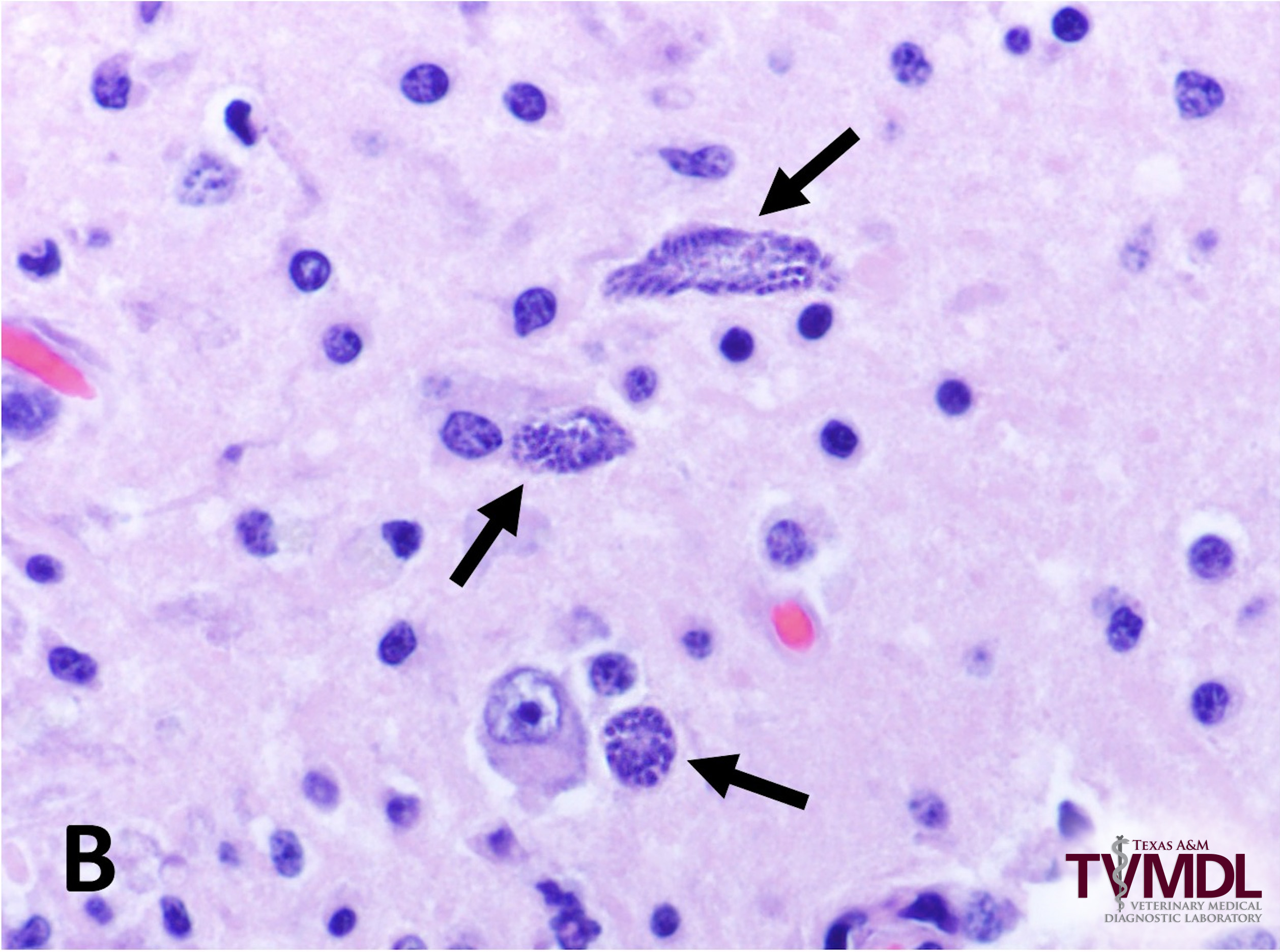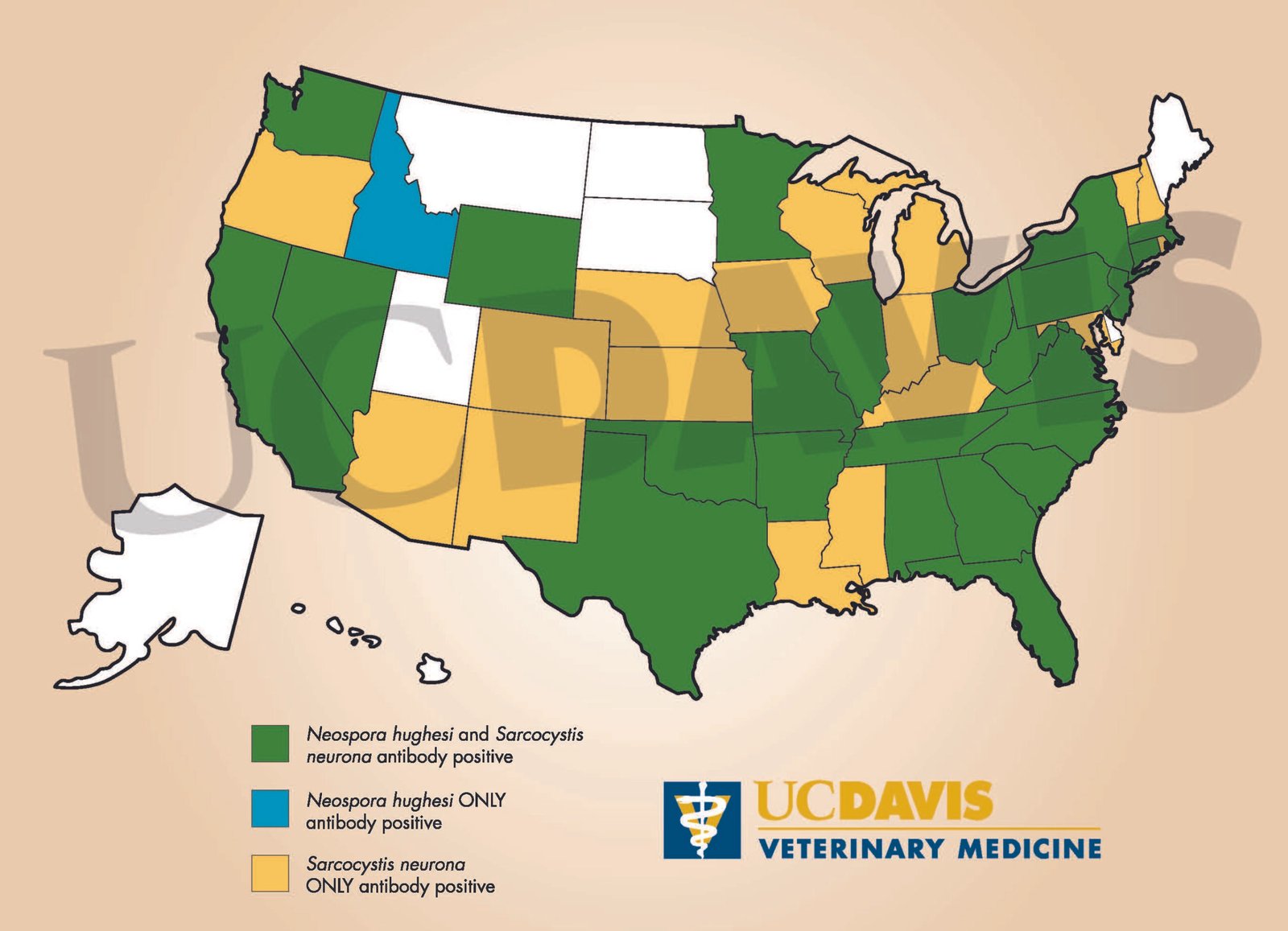Equine Protozoal Myeloencephalitis (EPM) is a neurological disease that affects horses, causing symptoms like ataxia (incoordination) and weakness primarily in the rear limbs.

Credit: en.wikipedia.org
Recognizing EPM in Horses
Owners may notice signs of obscure lameness, stumbling, and incoordination in horses with EPM. Clinical signs can include a head tilt when the brain stem is involved.
Incoordination and weakness are often observed in the rear limbs, especially when the horse raises its head or moves on uneven terrain.

Credit: tvmdl.tamu.edu
Treating EPM in Horses
Treatment for EPM involves the use of FDA-approved anticoccidial drugs like Ponazuril, Diclazuril, or Sulfadiazine/Pyrimethamine to control the infection. Additional treatments are administered based on the severity of symptoms.
Recovery and Prognosis
While some horses with EPM can fully recover and return to athletic activities, others may show minimal improvement or be unable to be ridden safely due to the severity of the disease.
Proper diagnosis, early treatment, and veterinary care play crucial roles in improving the prognosis for horses affected by EPM.
Preventing EPM in Horses
Preventative measures such as minimizing exposure to opossum feces, which can harbor the protozoa that cause EPM, and providing good stable management practices can help reduce the risk of EPM in horses.
Frequently Asked Questions On Equine Protozoal Myeloencephalitis (epm) In Horses
What Are The First Signs Of Epm In Horses?
The first signs of EPM in horses include lameness, stumbling, incoordination, head tilt, ataxia, and weakness.
Can A Horse Fully Recover From Epm?
Yes, a horse can fully recover from Equine Protozoal Myeloencephalitis (EPM). Treatment should include FDA-approved anticoccidial drugs, and additional treatments may be provided based on the severity of the clinical signs. With proper treatment, a horse with mild signs of EPM may return to full athletic use, while severe cases may show improvement but may not be safe to ride.
How Do You Treat Protozoal Myeloencephalitis In Horses?
To treat protozoal myeloencephalitis in horses, use FDA-approved anticoccidial drugs such as Ponazuril or Diclazuril. Provide additional treatments as needed based on the severity of clinical signs and any associated complications. Consult a veterinarian for a tailored treatment plan.
Is It Ok To Ride A Horse With Epm?
It is not recommended to ride a horse with EPM due to the risk of exacerbating symptoms and potential danger.
Conclusion
Equine Protozoal Myeloencephalitis (EPM) is a challenging condition for horses, but with prompt recognition, appropriate treatment, and preventive strategies, the impact of this disease can be mitigated.


